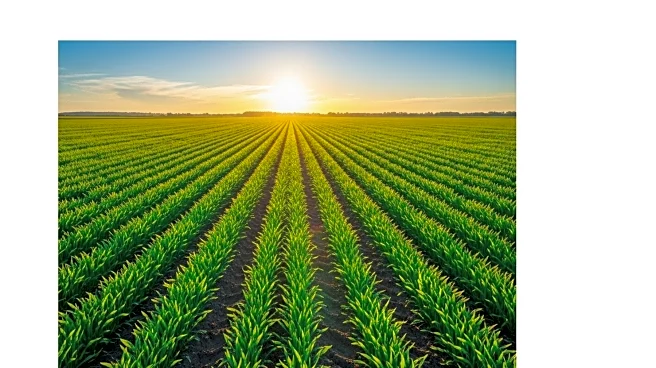What's Happening?
The Lagos Chambers of Commerce and Industry (LCCI) has emphasized the importance of agriculture as Nigeria's strategic pathway to economic diversification, job creation, and poverty reduction. At the 2025 Annual Fair Symposium, LCCI President Gabriel Idahosa highlighted agriculture's potential to transform from a survival activity to a wealth-creating, technology-driven sector. Despite contributing over 25% to Nigeria's GDP and employing nearly 35% of the labor force, agriculture remains under-optimized. The symposium focused on modernizing agriculture through innovation, digital technology, and precision farming to attract young agripreneurs and venture capital.
Why It's Important?
Agriculture is crucial for Nigeria's economic diversification, especially as the country seeks to reduce reliance on crude oil. By modernizing agriculture, Nigeria can enhance food security, create jobs, and drive inclusive growth. The emphasis on technology and innovation in agriculture aligns with global trends, offering opportunities for increased productivity and competitiveness. As Nigeria's population is projected to exceed 400 million by 2050, positioning agriculture as a growth driver is essential for meeting future food demands and economic challenges.
What's Next?
LCCI plans to continue advocating for the modernization of agriculture, focusing on technology-driven practices and changing public perceptions of farming. The organization aims to replicate successful agribusiness models from developed countries, highlighting innovation and opportunity. This approach could attract investment and support from government and private sectors, fostering a more competitive and sustainable agricultural industry in Nigeria.
Beyond the Headlines
The push for modern agriculture in Nigeria reflects broader global trends towards sustainable and technology-driven farming practices. It raises questions about the role of education and training in transforming agriculture into a desirable career path. The initiative also highlights the potential for agriculture to contribute to economic resilience and environmental sustainability, addressing challenges such as climate change and food insecurity.











